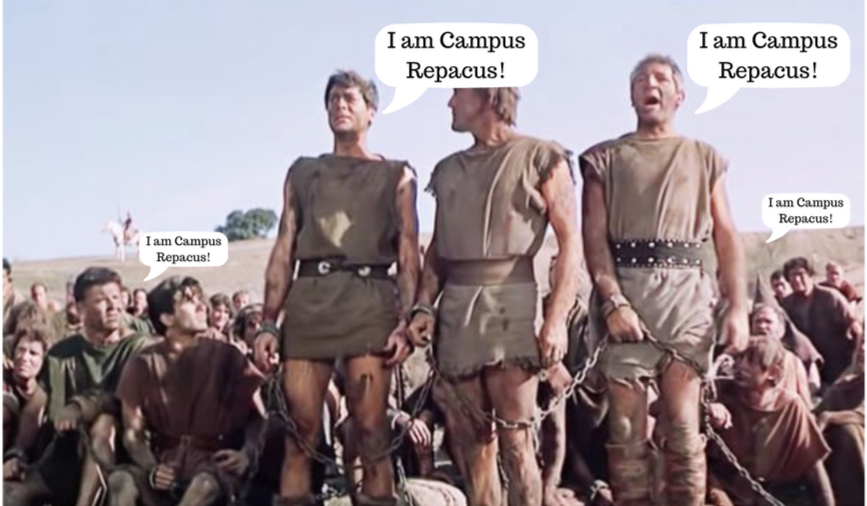|
By L. Spriggs
Employers are notoriously famous for mismanaging workplaces, especially when it comes to discipline. This mismanagement generally works in favor of union members since employees can't be punished for breaking a rule or violating a standard if the employer hasn't been enforcing that rule or standard for a prolonged period. When employers fail to enforce a rule or policy for any considerable length of time, the assumption is that the employer no longer expects its employees to follow that rule or policy. After all, isn't that the message they're sending by not disciplining employees? Arbitrators tend to agree, and they refer to such inaction as "lax enforcement." In order to prove lax enforcement when defending members, however, unions must provide proof that a rule or policy was violated, and that management either knew—or should have known—about the violation but failed to enforce the rule or policy. For example, the union could provide testimony from an employee who previously broke the same rule or policy in front of management but was never punished. Proving lax enforcement, however, runs the risk of what's called a "reset" by the employer, in which case an employer notifies employees of the existing rule or policy, explains how they failed to enforce the rule or policy in the past, and describes their plan to strictly enforce the rule or policy in the future. Once an employer has taken these steps, they're free to punish future violations as long as punishment remain consistent. But we know that management is rarely ever consistent... ;) By L. Spriggs Your employer can't discipline you for violating a rule or standard if they don't have substantial and credible evidence to justify the discipline. In his book titled Just Cause: A Union Guide to Winning Discipline Cases, Robert M. Schwartz recounts an interesting case where "an employee...called in sick with an intestinal disorder. Learning that she traveled to an out-of-state casino, the company fired her for dishonesty." In this case, the employee actually admitted to taking the trip but claimed to have been sick the entire time. Since the company didn't have any evidence that she could have worked, the arbitrator ruled in her favor and ordered that she be reinstated. Apparently, union members can go to the casino or a Cardinal's game when they call in sick as long as they actually look sick in all of the photos they post on social media... But seriously, don't do that. Generally, arbitrators rely on predetermined standards of evidence when evaluating grievances under the substantial evidence standard. These standards are not as robust as legal standards of evidence, but they still help to protect union members from being suspended or dismissed for unjust reasons. Furthermore, evidence that employers present, whether direct evidence, circumstantial evidence, or hearsay, can often be successfully disputed by a union depending on the circumstances of the situation. "Your employer can't discipline you for violating a rule or standard if they don't have substantial and credible evidence to justify the discipline." Imagine, just imagine, a student accuses a teacher of grabbing them in the hallway and the parents call threatening to get lawyers involved, so the administration decides to investigate and they determine the evidence to be significant enough to discipline the teacher. However, the teacher claims she was reaching for a pass that she had asked the student to show her. Now, let's also imagine, just imagine, that upon closer examination of the evidence, the camera footage capturing the incident is unclear and could be interpreted as footage of the teacher simply reaching toward the student instead of grabbing them. On top of that, the eyewitness accounts from another union member, as well as two other students, contradict the student's own claims.
In such a case, if the administration still moved forward with suspension or dismissal and the case eventually went to arbitration, the evidence presented by the administration would not meet the standard of substantial evidence. By L. Spriggs Just Cause Standards: How Unions Defend Their Members Against Unfair Discipline
Let’s say you’ve been through the process of being called to the principal’s office for some infraction, you’ve had a meeting with the administration, and the administration has decided to move forward with discipline, but the member, or union leadership, believes the discipline is unfair or unjust. What happens next? At that point, the member or the union may decide to move forward with a grievance, or formal complaint, against the district. The specific grievance process is outlined in our bargaining agreement. In brief, if the union and the administration cannot satisfactorily resolve a discipline issue informally, the union can submit the complaint to binding arbitration, which means a neutral, independent arbitrator will review the issue and decide whether the discipline was justified or not. There are seven standards that arbitrators generally refer to when determining whether a particular disciplinary action was justified, and these are called the just-cause standards. They include prior notice, substantial evidence, progressive discipline, recent enforcement, consideration of mitigating or extenuating circumstances, equal treatment, and due process. Whenever your union is tasked with defending you against unfair discipline, your representative should be familiar with how these just-cause standards might apply in your particular situation, and be able to help prepare your case for arbitration. By L. Spriggs In a nutshell, your employer can't discipline you for violating a rule or standard if they haven't made clear what the rule or standard is by notifying you prior to the offensive behavior.
It's an employer's duty to establish rules and procedures of conduct in the workplace; otherwise, how is an employee to know what is allowed and what is forbidden? For that reason, it's also their duty to notify you of those rules and procedures as well as any potential penalties that may result. Some behaviors, however, are self-evidently wrong, and employers aren't required to publish rules about those behaviors (e.g., lying, stealing, fighting, sleeping on the job, etc.), so keep in mind you can still be disciplined for such offenses even without the rule having been previously posted anywhere. Employers can publicize rules in a variety of ways, such as memos, bulletin boards, emails, faculty meetings, announcements, contracts, etc., and the assumption is that employees read and understand rules that are posted or disseminated in the workplace. In other words, if you don't read your emails and you end up missing a posted rule as a result, the union can't claim ignorance on your behalf in order to get you out of a punishment, so if you're reading this and you're one of those people who either proudly or sheepishly claims to not read their emails, start reading your damn emails if you expect your union to have your back. By L. Spriggs  We would all benefit as a union if everyone were knowledgeable enough to advocate on behalf of a fellow member at a moment’s notice. Technically, any member may represent another. In fact, sometimes you might not prefer your elected representative for whatever reason—perhaps you've had a previous confrontation or a difference of opinion or philosophy on the particular issue at stake, for instance. For that reason, it's important to know that you can always choose another member to represent you in meetings with the administration. Although, it's still beneficial for the officially-elected campus representatives to know about issues affecting members within the workplace. This is because the way in which your individual issue is dealt with or resolved may impact everyone else by setting precedent for discipline. Either way, a good representative should have a working knowledge of the contract, the grievance process, the law, and your rights in the workplace. They should also be articulate and capable of presenting facts and information on your behalf and in your favor during a meeting. There are two situations when a union or union representative could help you concerning discipline: either the administration is investigating a situation in order to decide whether discipline is necessary, or they've already decided on discipline and that discipline has violated the contract or your due process rights. In the first instance, which is the focus of this post, you’ll likely want union representation during any investigatory meetings. In fact, the union and the administration have contractually agreed to first meet informally to solve workplace complaints before moving ahead with a formal grievance. Before one of these meetings, you have the right to talk with your union representative privately. During one of these meetings, your union representative may ask clarifying questions on your behalf, may request more information from the administrator, may make requests for the administrator to rephrase or clarify questions, and may provide more information to the administrator at the end of the meeting. Now, you might be thinking, "I could do all of those things for myself. Why do I need a union rep. if that's all they can do?" And for some of you, you're absolutely right. However, unionized employees actually have quite a few more legal protections against unfair discipline, and we'll discuss those protections in more detail in future posts. Furthermore, a company will often handle a situation quite differently once they know the union is involved, which tends to benefit even members who are otherwise perfectly capable of advocating for themselves. |
Categories
All
Archives
May 2023
Editor:
Proud alumnus, union member, and educator in District #201 since 2006. Contributors
Dr. Hentze is the author of High Finance with Hentze, a monthly blog that provides news about District 201's current financial state. |

 RSS Feed
RSS Feed